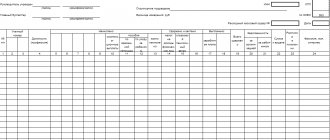What is leave without pay?
For compelling family reasons or other reasons, employees may be granted unpaid leave.
This is what is usually called leave without pay or at your own expense. It is calculated only in calendar days. Leave without pay is included in the length of service, giving the right to a paid annual break from work in an amount not exceeding 14 calendar days per year.
If the employee took more rest at his own expense, then starting from the 15th day the work period shifts.
Mandatory leaves without pay based on Federal laws
The list of grounds for compulsory leave without pay is not limited to the Labor Code. Certain categories of workers have this right based on federal laws. We present these categories of citizens in table No. 3
| 15 one month four months | 173 | |
| applicants entering an accredited institution of secondary vocational education (SVE) | 10 | 174 |
| students receiving secondary vocational education: | ||
| 10 two months | 174 | |
| part-time workers, if the annual paid leave at the main job is longer | the difference in the duration of vacations | 286 |
| Category of citizens | Term | Federal Law No. and date |
| Invalids of war | 60 days a year | 01/12/1995 No. 5-FZ |
| Combatants | 35 days a year | 01/12/1995 No. 5-FZ |
| Individual participants in the election process | during the elections | 11.26.1996 138-FZ |
| Heroes of Labor and Knights of the Order of Labor Glory | up to 3 weeks | 01/09/1997 No. 5-FZ |
| Military wives | additional unpaid days are provided in accordance with the husband's leave | 05/27/1998 76-FZ |
| Candidates' proxies | for the term of office | 06/12/2002 67-FZ |
| Members of election commissions, candidates' proxies | from the moment of registration of the list of candidates until the announcement of election results | 01/10/2003 No. 51-FZ |
Who has the right to it
Every employee has the right to this type of rest. Its duration is determined individually in each case. But the manager may refuse to provide such rest if the production process without an employee is disrupted, and the organization cannot do without him during this period.
But, according to the Labor Code, management is obliged to provide once a year unpaid vacation periods to preferential categories of employees:
- WWII participants - up to 35 days;
- for pensioners - up to 14 days;
- parents and wives (or husbands) of military personnel, firefighters, customs officers, police officers and correctional officers killed in the line of duty - up to 14 days;
- disabled people - up to 60 days;
- employees upon registration of marriage, birth of a child and in case of death of close relatives - up to 5 days.
For example, leave without pay for working pensioners can be added to paid leave or used at other times of the year in full or several times in parts.
Rights of employee and employer
The employee and the employee have the rights and obligations to comply with the procedure for granting leave. There are a number of categories of employees who are entitled to it upon request:
| Workers | Maximum duration per year |
| WWII participants | 35 days |
| Pensioners | 14 days |
| Disabled people | 60 days |
| Combat veterans, close relatives of military personnel who suffered during hostilities | 14 days |
| Other categories in cases of marriage, birth, death, etc. | 5 days. |
| Applicants for entrance exams to higher and secondary universities | 10 – 15 days |
The laws of the constituent entities of the Russian Federation, collective agreements of enterprises and organizations, and other regulations define additional categories of persons.
They may be:
- workers of the Far North to fly to the mainland for recreation;
- employees who combine positions, in cases where the rest for the main job is shorter than for the additional one.
- Heroes and holders of the Order of Glory, Labor Glory - up to 14 days a year;
- state and municipal employees – up to a year.
Regulatory acts and collective agreements provide this opportunity to military wives, employees sent for treatment to sanatoriums, parents with more than two children under 14 years of age, disabled children under 18 years of age, mothers and fathers who are raising a child under 14 years of age alone.
The presence of a maximum period does not oblige the applicant to use it in full. He can do this several times during the year. Leave is issued by order of the company management based on a written application from the employee.
Employee rights
- Return to work before the vacation is over. To do this, you must notify the employer in writing.
- Cannot be fired while on leave at the initiative of management.
- Write an application for three days at your own expense in case of illness without presenting sick leave.
When leaving, the employee is not entitled to any payments.
Employer's rights
- If the employee does not belong to the preferential category of persons, the decision is made by the manager. The duration and period of assignment are determined by agreement of the parties and are regulated in connection with production needs.
- An employer does not have the right to send an employee on leave without pay on his own initiative.
How to apply
A sample application for leave without pay can be downloaded from our website. The document is drawn up in any form. The main thing is that the application must indicate the start date of the vacation and the number of days required. The manager must approve the application by stamping his visa on it. And after that the personnel officer issues an order.
Public sector organizations must use standard forms of primary accounting documents. The order to provide rest is issued in a unified form No. T-6. Following the manager’s signature, the employee also signs the order. In this way, the fact of the employee’s absence is documented.
Application for leave without pay: how to write it correctly?
If it is mandatory to provide days at his own expense, the employee simply submits an application for unpaid leave, in person or by mail, indicating the time of rest. In the absence of benefits, the algorithm of actions is as follows:
- on granting this employee (or group of employees) leave without pay, indicating the terms, signed by the manager.
- Entry of information into a personal card by HR department employees (initial after the start of the vacation, clarification after the end).
- Transfer of documents to the HR department.
- for unpaid leave by an employee addressed to the manager, indicating a valid reason, number of days and specific calendar dates for the start and end of unpaid leave.
- Verbal agreement on the possibility of receiving leave without pay and its timing.
- Endorsement of an application for unpaid leave by the manager.
Application for unpaid leave - sample in Word format you can download
Can an organization, on its own initiative, send an employee on leave without pay?
Rest without pay is provided to an employee only at his request for valid reasons in his personal life. It is not possible at the initiative of the employer.
There are times when an unstable situation arises at an enterprise. For example, management was unable to foresee the scope of work and downtime occurred. Downtime caused by the employer must be paid. But ignorant or unscrupulous employers, trying to justify their business risks, offer their subordinates to go on vacation at their own expense. This is illegal.
Employer initiative
In some situations, employers may invite employees to apply for leave. This initiative is a gross violation of Russian legislation.
Forcibly sending a worker on vacation may result in administrative liability in the form of a fine:
- for officials – up to 5,000 rubles;
- for persons who conduct business activities without forming the status of a legal entity - up to 5,000 rubles or deprivation of the right to conduct activities for a period of up to 3 months;
- for legal entities – up to 50,000 rubles.
If a repeated violation is detected, this may result in disqualification for a period of up to 3 years.
In the event of a forced application for leave, hired employees have the right to count on monetary compensation in the amount of no less than 2/3 of the average salary in accordance with Art. 157 Labor Code of the Russian Federation.
Based on this, employers have the right to send employees on vacation on their own initiative, but at the same time paying 2/3 of the salary for the entire period of forced downtime.
Any other cases may be considered a gross violation of Russian legislation, which is why it is possible to appeal this fact to a judicial authority.
Responsibility of employee and employer
Maximum coordination of the interests of the employee and the employer will serve as a good incentive for the development of labor relations. In some cases, the employee must be warned in advance that he needs rest so that production does not suffer due to his absence. In this case, management will review employee schedules in advance or find a temporary replacement.
It is important to explain to the manager the reason for the circumstances due to which you need to leave temporarily, listen to his opinion, and take it into account when making a decision, write a statement. Employers, as a rule, freely agree in this case to fulfill their obligations and let employees go.
The employer is obliged to always comply with labor law standards. Violation entails an administrative warning or a fine for an official in the amount of 1,000 to 5,000 rubles, and for a legal entity - from 30,000 to 50,000 rubles.
Responsibility of employer and employee
An employer must take into account not only its own interests, but also the interests of hired specialists.
This approach to labor relations is the key to long and productive cooperation. In turn, workers must notify their superiors in advance of the need to receive additional days of rest. Timely notification to management allows the latter to take all necessary measures to minimize production downtime.
Timely notification to management allows the latter to take all necessary measures to minimize production downtime.
The manager who has received such a notice can review the work schedule and select a replacement for the employee who is going on unpaid leave.
That is why lawyers recommend that employees first coordinate all their decisions with management. In most situations, company managers do not prevent employees from going on vacation. The main task of the employer is to comply with all labor law standards. Violation of the rights of officially employed citizens entails administrative liability in the form of a fine.
If such offenses are committed, the organization is subject to a fine of thirty to fifty thousand rubles.
Regulatory framework
Most personnel issues are resolved on the basis of the Labor Code. Article 128 of this legislative act contains the grounds for granting an employee leave without payment of wages and its possible duration.
Based on the content of the article, any employee officially employed at an enterprise has the right to take administrative leave for family reasons or other valid reasons. Additional days off can only be arranged by agreement with the management of the organization. In addition, a staff member cannot set the duration of his vacation himself, since this issue is also within the competence of the boss. The provision of administrative days off must be documented by an appropriate statement.
The maximum duration of leave without pay in the Labor Code of the Russian Federation is prescribed only for certain categories of the population:
- disabled people;
- WWII veterans;
- employees who have reached retirement age;
- close relatives of military personnel or rescue workers who were injured or died in the line of duty.
Maximum and minimum period
Initially, it should be noted that the length of service includes free rest only if its duration is no more than 14 days.
At the same time, the maximum period of this rest, according to labor legislation, directly depends on the status of hired workers. Some of them can count on privileges.
This is largely due to the fact that in some situations employers do not have the right to refuse employees free leave.
These citizens usually include people with disabilities, officially employed pensioners, and other socially vulnerable citizens.
These employees have the right to count on longer free leave than others:
- in the case of a disabled person, he has the legal right at any time to apply for free leave for a period of up to 2 months - employers are prohibited from refusing;
- workers who simultaneously receive education while working have the right to receive free vacation for a period of 1 month for the purpose of passing exams, tests, and so on;
- workers who have already been able to earn pension benefits upon reaching their age can receive rest without pay for up to 14 days;
- parents and families of persons who died due to injury while serving in the RF Armed Forces.
These employees have a legal right to receive free holidays. All other categories of citizens can receive it with the permission of the employer.
In what cases is it compiled?
Legislative acts (the Labor Code of the Russian Federation) do not contain an unambiguous and precise list of conditions that make it possible to use this leave, so the company draws up internal regulations.
They indicate the timing and reasons why an employee has the opportunity to exercise the right to take leave for family or personal reasons.
The possibility and timing are determined by agreement between the applicant and the manager, in each situation individually.
A collective agreement may also be drawn up, indicating other reasons, deadlines and a list of employees who can take advantage of the opportunity to go on such leave (for example, parents of young children in single-parent families or mothers and fathers of disabled children).
According to the law, the manager is not authorized to force him to go on leave without pay if the worker does not agree.
A precedent is when workers, due to the employer, are unable to begin their direct duties, then the situation is called idle time.
The legislative documents (Part 1 of Article 157 of the Labor Code of the Russian Federation) stipulate that the period of forced downtime is paid based on wages, but not less than two-thirds of the average wage. Otherwise, this is considered a violation and liability may arise in the form of a warning or fine for the employer.
Legislatively (Part 2, Article 128 of the Labor Code of the Russian Federation) also outlines the terms and circle of persons whose request for leave without pay the manager has no right to reject (the intervals are indicated in calendar days):
- at the birth of a child – 5 days;
- persons who took part in the Second World War - up to 35 days within a year;
- upon marriage – 5 days;
- due to the death of close relatives – 5 days;
- if the employee is a student at a university or school (Article 173 and Article 174 of the Labor Code of the Russian Federation) for the period of passing the session (university - within 15 days, school - within 10 days), state exams (university - within a month, school - within within 2 months) and to defend a diploma at a university (within 4 months);
- when sending close relatives to serve in law enforcement agencies - cannot exceed 14 days within a year;
- pensioners (by age) can take advantage of this leave, but not more than 14 days within a year;
- disabled people are given the opportunity to take leave without pay for no more than 60 days per year;
- other persons whose rights are specified in other regulatory documents and laws.
Part-time employees can also take leave without pay, but only on the condition that the paid annual leave at the place of part-time employment does not exceed the duration of leave at the main place of employment (Article 286 of the Labor Code of the Russian Federation).
Unpaid leave at the initiative of the worker, extending beyond the period of 14 days, is not summed up in length of service and is not taken into account in calculating annual rest.
Such holidays cannot be extended or postponed to next year.
Similarly, sick leave during its period is not paid, but the employee will be released additionally for the total number of days of illness, upon presentation of the document.
Additionally, by agreement of the parties, it is possible for the employee to leave earlier than the date specified in the application for leave without pay.
After the employee writes an application and provides supporting documents (if any), the manager assesses the prospect of leaving the employee on unpaid leave. Upon approval, an order is issued to allow the requested leave to be taken without pay.
While on leave without pay, an employee does not have the right to fire. Except in case of liquidation of the company.









